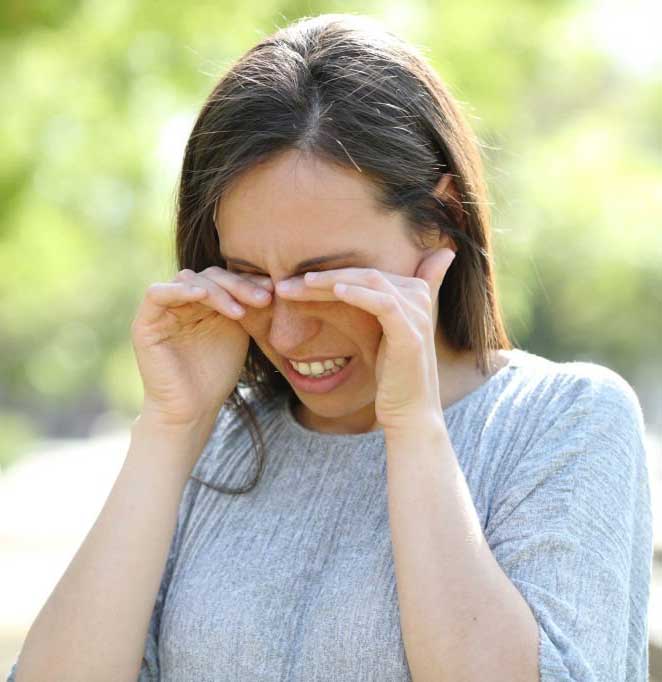Allergies that occurs due to seasons in eyes
Allergy, when usually people hear this word they think of sneezing, running nose, continuous coughing etc. But even eye allergy exists and the seasonal eye allergies are common. We will talk how this allergy is triggered, then symptoms and then measures to cure the allergy.
Understanding Eye Allergy:
Eye allergies are also known as allergic conjunctivitis. It is caused as other allergies occur, when immune system reacts with foreign substance. The key suspects for your allergy can be grass pollen, dust mites, mold or pet dander. Histamine, a chemical which causes inflammation is released due to which blood vessels in your eyes swell and eyes gets itchy, red or teary.

Allergies can be:
Common: These eye allergies are called seasonal allergic conjunctivitis and are mainly caused by pollens of grasses, weeds and trees.
Cronic or Perennial Conjunctivitis: These eye allergies last year-round and are caused by mainly dust, pet dander and other indoor allergens.
Other allergies can be caused by makeups, perfumes, or due to contact with other chemicals and are called contact conjunctivitis. Allery caused by contact lenses are called giant papillary conjunctivitis which causes bumps on the inside of your eyelids.
Symptoms for eye allergies:
If you have allergies, you will definitely have symptoms. We will be talking about the symptoms of allergies through which you will understand you have eye allergy.
The symptoms are as follows:
1) Red, irritated eyes.
2) Itchiness.
3) Tearing or runny eyes.
4) Swollen eyelids.
5) Soreness, burn, or pain.
6) Sensitive to light.
You can also have a runny nose or sneezing like other allergy symptoms.

Treatment for eye allergy:
Some medicines used for nasal allergy relief can be used for eye allergies. You can take pills or eye drops too for quick relief.
Antihistamine pills: Antihistamine pills and liquids block the histamine and relieve itchy or watery eyes. Some pills or liquids can cause drowsiness.
Antihistamine Eye Drops: It works well, but you may have to use it several times a day. But don’t use it for more than 2-3 days instead go for the prescribed one.
Some eye drops work only before your symptoms, but the effects stay longer.
Prescribed eye drops:
1) Ketorolac: These eye drops relieve itchiness in an hour and may sting or burn at first.
2) Steroid: These eye drops treat severe or long-lasting eye allergies, but are never used for a long time as they can cause side effects.
Measures to reduce symptoms:
1) Wear sunglasses when going outside.
2) Rinse eyes with preservative-free saline water.
3) Keep your eyes moist with lubricating eye drops.
4) Remove contact lenses.
5) Don’t rub your eyes even if it itches.